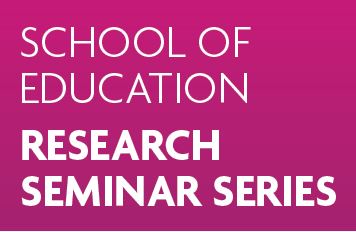This is a past event
An empirical study of the religious beliefs of secondary RE teachers in England and Scotland
by Graeme Nixon (University of Aberdeen, UK), David R. Smith (University of Aberdeen, UK), and Jo Fraser-Pearce (UCL Institute of Education, University College London, UK)
This paper, based on 442 survey responses from English and Scottish secondary teachers of Religious Education (RE), explores the background of these teachers against three background variables: qualifications; personal theistic belief, and religion; to establish the complexion of current English and Scottish Teachers of RE. This research, taking place against a back drop of secularisation, remodeling of RE, and declining numbers in undergraduate study of Theology and Religious studies across the UK, seeks to establish how RE teachers enter the profession, what religion they belong to (if any) and the range of theistic, atheistic or agnostic teachers within the RE profession. This paper, acknowledging the similar and contrasting natures of England and Scotland in terms of the history, status and purpose(s) of the subject, evidences that RE teachers in these countries come from diverse academic backgrounds, and that significant numbers of these RE teachers profess no religion, atheism and agnosticism. The further granulation of the data to England and Scotland allows us to make tentative links with national census and social attitudes research, and with literature which posits nuanced secularisation trajectories depending on national and theological context, as well as the policy frameworks unique to these two jurisdictions. Furthermore, the data set allows us to cross-tabulate not only this data (for example, between degree background and religious beliefs), but also with the data within our earlier paper on essentialised and sanitised views of religion in the RE classroom (Smith, Nixon and Pearce 2018). This latter cross-tabulation reveals that there is a mixed correlation between religious beliefs (and their absence) and such tendencies. We conclude tentatively that this may show that the extrinsic demands on the subject to develop tolerance, good citizenship and respect may not manifest equally; and that the personal beliefs and religion of the teachers who responded to our survey reveal different approaches to how religion is represented in the classroom.
- Venue
- MR302 MacRobert Building
- Contact
-
soe-research@abdn.ac.uk

